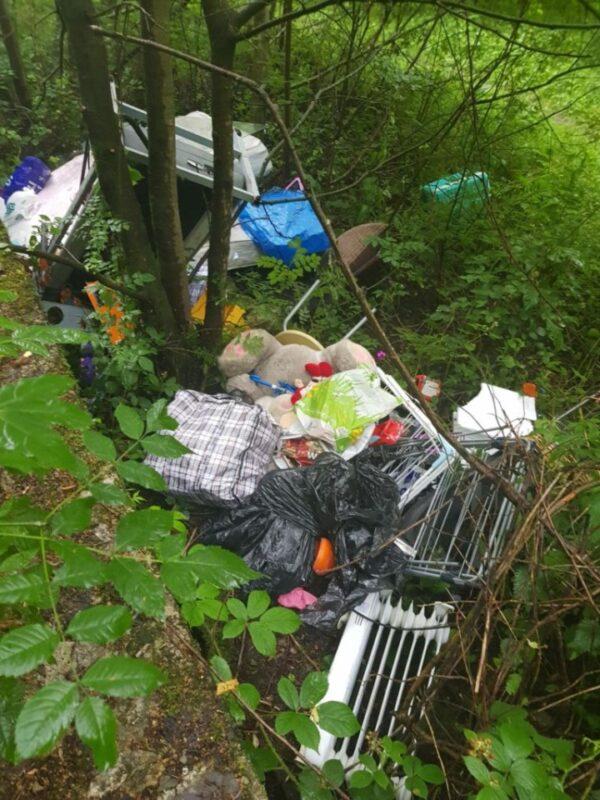
Council introduce tougher fines for environmental crimes
Rossendale Borough Council is taking decisive action to tackle environmental crimes by increasing Fixed Penalty Notice (FPN) fines in line with government recommendations. The measure aims to reduce incidences of fly-tipping, graffiti, and other environmental offences that negatively impact the community and natural surroundings.
The FPN for fly-tipping will increase to an upper limit of £1000 from £400 and household waste duty of care will rise from £300 to £600.
Fly-tipping poses a significant environmental hazard, capable of destroying habitats and posing threats to both humans and wildlife. The new measures are designed to discourage such anti-social behaviour and to ensure a cleaner, healthier environment for everyone.
The increased FPN fine levels are a direct response to the Government’s call for stronger action against environmental offences. By implementing these higher fines, Rossendale Borough Council aims to deter individuals from engaging in activities that mar the beauty and cleanliness of the borough.
Councillor Adrian Lythgoe Lead Member for Environment emphasised the importance of this initiative: "Environmental crimes like fly-tipping and graffiti have far-reaching consequences on our communities. They degrade our natural surroundings, pose health risks, and divert valuable resources away from other essential services.
“By increasing FPN fines, we are sending a clear message that such behaviour will not be tolerated in Rossendale. We are committed to preserving the quality of life for our residents and maintaining the beauty of our valley."
Government guidelines have urged local authorities to adopt a more robust stance in enforcing penalties for environmental offences. These adjustments aim to strengthen deterrence and it’s hoped encourage behaviour change.
Fly-tipping, in particular, remains a significant challenge for local authorities with 1178 incidences of fly tipping reported in Rossendale last year. This offence blights landscapes, harms wildlife, and can lead to severe environmental pollution. The transient nature of fly-tipping makes detection and prosecution difficult, underscoring the need for stringent penalties and robust enforcement measures.

